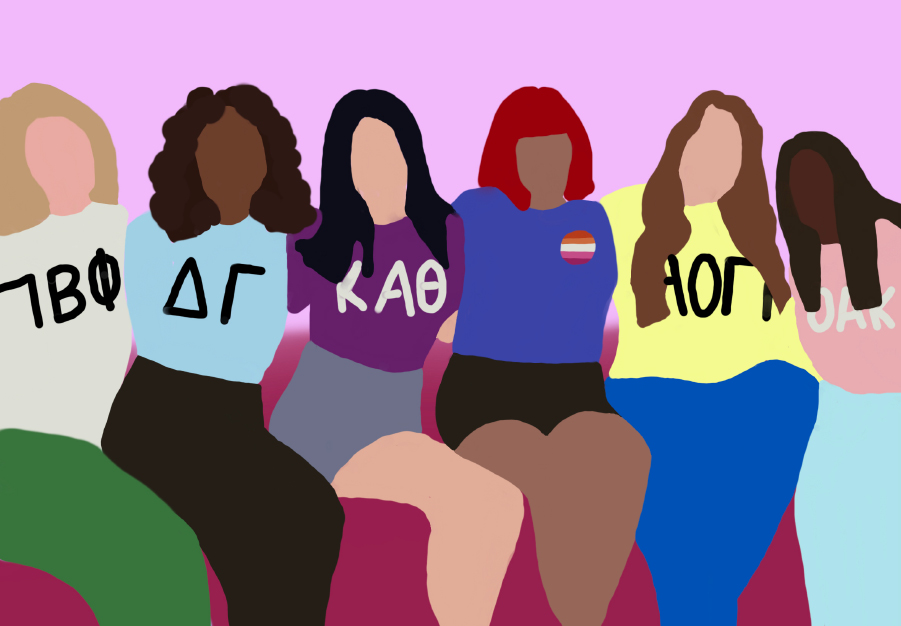I first visited Chicago on the 16th of September 2019, that is, less than a week before orientation. That’s right, my initial impressions of campus were formed as I dragged my luggage, heavy with wool sweaters, through the 30 degree heat (that’s 86 to all you Americans) towards North Residential Commons for international pre-orientation (IPO). The building seemed like a CGI rendering, despite me having ogled it multiple times through a computer screen 4000 miles away. I remember asking a student for directions to Pret—a beacon of familiarity for me—finding it closed though, I wandered down what I now know is 57th Street, alone and slightly lost. The streets felt weirdly empty and suburban, so different from what I was used to.
Over the next year, I became all too familiar with the unfamiliarity that underlies the freshman experience, an unfamiliarity that is inescapable for international students. While daunting, this very unfamiliarity is what makes us essential, and is where we can find belonging.
Feeling adrift in your first few days, weeks, even months of college is common—old routines are replaced, and high school friends and parents grow more distant as independence is thrust upon you. International students have to tackle all of this whilst coming to terms with living in an entirely new country and, in most cases, continent. As a Brit who had visited the States beforehand, any form of culture shock I experienced was very much muted; even the minor differences in climate or colloquialisms were not incredibly jarring. For others, though, especially those brand new to America, facing these little changes on top of being literally thousands of miles away from friends and family can make the entire college experience deeply overwhelming.
Although I didn’t really experience culture shock, I still felt there was a gap in understanding between myself and my domestic peers—and that I am implicitly charged with bridging this gap. At first, as we jokingly argued over misspellings and accents, it felt like there were only surface-level differences between us. However, as time went on, it became clear there were fundamental differences in our education, upbringings, and even the TV shows that shaped our childhoods. Uncovering these and discussing them taught me a lot, but at the same time, it felt isolating to be constantly explaining rather than relating.
Adding to this burden of otherness was this paranoia that I was being seen solely as Emma The British Kid—that where I was from was seen as my defining quality, since it was brought up so much. I didn’t mind this as long as others seemed genuinely curious to learn more about my background, but hearing assumptions and stereotypes thrown around about Britain and international students in general was somewhat irritating. It is impossible to bucket international students together; hailing from over one hundred different countries, our backgrounds are so varied.
To my fellow international students: Don’t be afraid to correct misconceptions, or to point out actions that feel alienating. Often, others do not realise what is wrong or may be seen as offensive. Talk about the differences between home and Hyde Park. You may feel like you are exposing yourself as an outsider, but you’re truly broadening your friends’ and teachers’ worldviews, for this goes both inside and outside the classroom. In conversation and lessons, when the topic drifted towards current affairs or U.S. history, it can feel that it’s not our place to comment. Ignore that feeling. As international students, our backgrounds and perspectives are unique, enlightening, and essential. Some of the most memorable moments from my Hum and Sosc classes were when international students shared their past experiences that related to the texts we were reading, leading me to view them in a completely different light. Our presence on campus truly shapes others’ worldviews. The term diversity may feel overused these days, but we can’t forget how it benefits us all.
Class of 2024, I am sorry that you’ve been robbed of a chance to get to know one another through IPO this year. I am sorry that for many of you, your first impression of Chicago—of the U.S.—may be formed during a 14-day quarantine or maybe not until January. Now, more than ever, it is important to connect with one another if you haven’t already—over social media, or through the programming the University will be putting on in lieu of IPO this year. There is also the International Student Association, as well as countless cultural RSOs you can get involved in. Talk to each other about that sense of unfamiliarity. Talk about how weird your new American pals are (and about how it’s 2020 and they still aren’t using the metric system??).
Finally, congratulations on making it here. I know applying as an international student can be so taxing (literally—filing taxes is a pain in the ass). The hardest part for me was tackling the US applications process, the essays, the SAT, without proper guidance and alongside a domestic application process that was completely dissimilar. I know a lot of you faced the same. Congratulations on making it against all odds, against the stress of travel bans, coronavirus, and the battle against ICE. You are here, be it on campus or online, and you belong here.
Emma Weber is a second year in the College.















